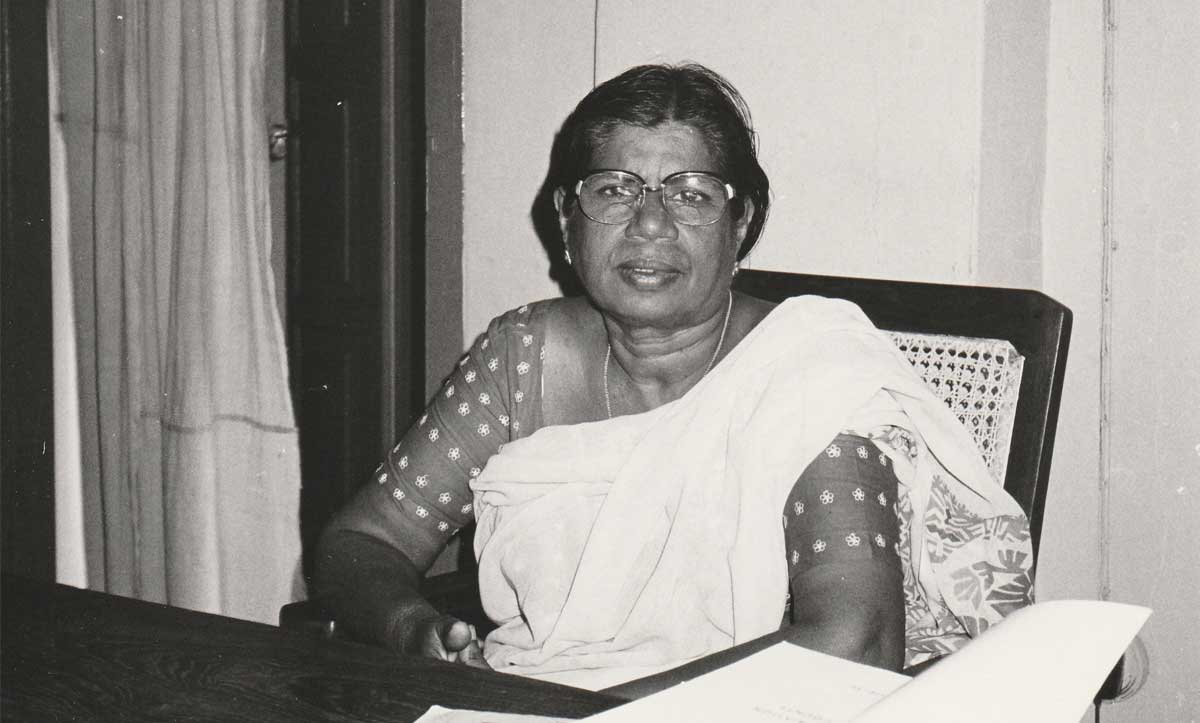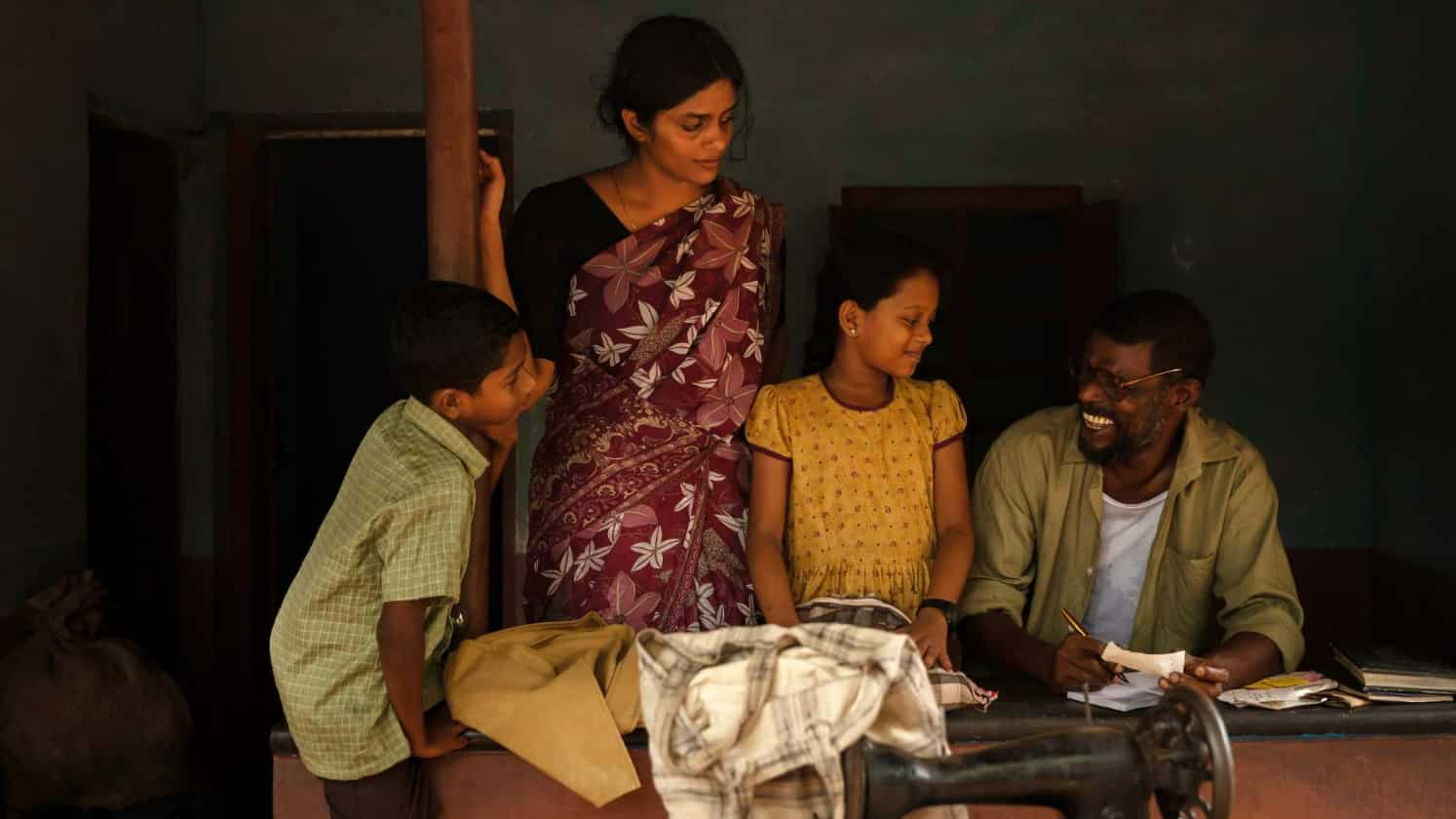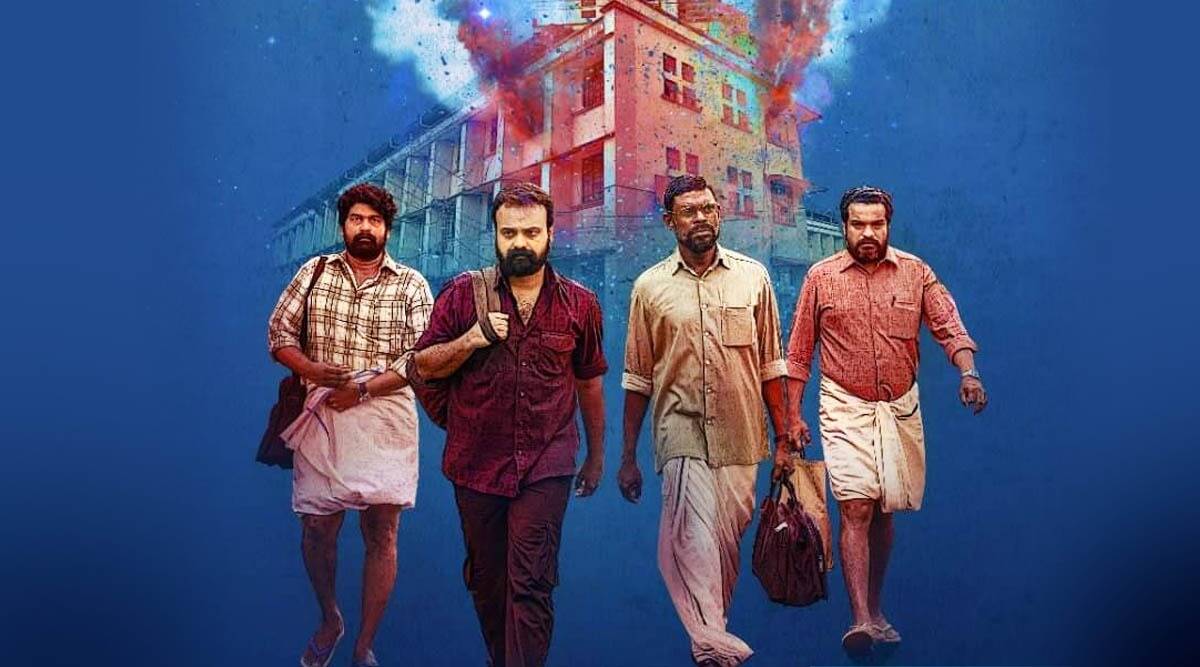“Our demands are very simple. We ask you to uphold the constitutional values you endorse. We ask you to withdraw the unjust amendments to the Tribal Land Act”, members of the Ayyankali Pada say in news footage that dates back to 1996. This was part of the statement of the four-member gang that held the district collector of Palakkad hostage for over eight hours in an unprecedented act of protest in the political history of Kerala.
On October 4th, 1996, four men who identified themselves to be part of the Ayyankali Pada, a left-wing group, entered the premises of the Palakkad collectorate and confined the then district Collector W.R Reddy in an attempt to bring national attention to the E. K Nayanar-led Left Democratic Front (LDF) government’s amendments to the Kerala Scheduled Tribes (Restriction on Transfer of Lands and Restoration of Alienated Lands) Act, 1975, depriving the Adivasi community of their rightful land.
It is amidst this factual landscape that writer/director Kamal K.M places his debut Malayalam feature film Pada. Inspired by the events of 1996, Pada is a thriller that investigates the undemocratic nexus of the State which facilitates the perpetual landlessness and violent oppression of the Adivasi community in Kerala.
The political legacy of Ayyankali, referred to by his followers as Mahatma, is that of reclaiming what rightfully belongs to the oppressed. Whether or not Pada does justice to the community whose voices it tries to document and amplify is for members of the community themselves to comment on. Cinematically, Pada is a well-made political hostage drama that recreates a chapter from history at a time when memory itself is a form of political resistance.
Though several feature films have previously documented important incidents from Kerala’s history, what stands out in the case of Pada is its self-awareness in terms of how power and masculinity are portrayed throughout the narrative. With four of Malayalam cinema’s most veteran male actors in the lead, (Vinayakan, Joju George, Dileesh Pothan, Kunchako Boban) Pada could have easily been a testosterone charged frenzy in its storytelling style, but it is not.
Not only does the screenplay abstain from being gullible to this, but also displays an acute sense of awareness about the disservice the masculinisation of the narrative could do to the plot, the politics and to cinema as a medium.
The de-masculinisation of power
While Karl Marx and Sigmund Freud respectively cite money and sex as the defining pursuits of human beings, Bertrand Russell asserts that it is power which ultimately drives us. Power, according to Russell, has many guises and is the single most irreplaceable founding element in the organisation of any society, relationship, or institution.
Since men have historically had the access to power, it is constructed and performed as something inherently connected to masculinity. The machoistic, hierarchical execution of power reflected by the state and its arms is also an embodiment of this very notion of power, which primarily aims to control and dominate.
While giving context to the Kerala Legislative Assembly’s amendments to the Kerala Scheduled Tribes (Restriction on Transfer of Lands and Restoration of Alienated Lands) Act, 1975, which prompts the incidents in Pada, the film mentions that the Bill was passed unanimously in the Assembly, except for one dissenting member’s voice – K. R. Gowri
In popular culture, films that essay power always follow the tired trope of hailing the masculine perception of it – conquer, possess, destroy, avenge, or save. Right from the Godfather trilogy, the supposed textbook of popular film making, to the recent national phenomenon Baahubali, the cinematic universe of which is rooted in the masculine assertion of power, to Minnal Murali, Malayalam’s first homegrown superhero film, to Kurupp, Churuli, or even Bro Daddy, all of which have struck chords with the audience not just in Kerala but through the country, we see how masculinity and virility become the fulcrum of both the plot as well as the visual language of films.
Pada is inspired by true incidents that could have been used for the cinematic gimmick of painting the male leads as hypermasculine avengers. But the film cleverly subverts that. The protagonists of Pada are unflinching heroes, not because they are ‘man enough’, but because they are human enough to be driven by a radical sense of empathy. The four leading men are vulnerable, susceptible to fear, fatigue and hunger – making them extremely human while not taking away from their unshakable will.

The scenes inside the collectorate where they interact with the district collector they hold hostage show how aware they are of their own humanity. The ensuing interactions also emphasise the need to recognise the boundaries within which each individual functions, even when one is at war with the system they represent. Towards the climax, it becomes evident as to where the protagonists stand in terms of their intentions and the means to their goals.
Pada investigates the political empathy gap created by vertical hierarchies, and de-masculinises its protagonists to underline the lateral, democratic, alternate philosophy of power it attempts to embrace.
K. R. Gouri, women as the bearers of aftermath
While giving context to the Kerala Legislative Assembly’s amendments to the Kerala Scheduled Tribes (Restriction on Transfer of Lands and Restoration of Alienated Lands) Act, 1975, which prompts the incidents in Pada, the film mentions that the Bill was passed unanimously in the Assembly, except for one dissenting member’s voice – K. R. Gowri.
Questioning the Bill which denied rightful restoration of land to the Adivasis, K. R. Gouri said:
“Where have gone all the schemes for tribals? If this bill is passed in this form, it will cause the genocide of tribals, nothing less. The government should provide alternative land to farmers and let tribals live in their own places. Shifting them from their land is just like taking a fish out of water. It is vote but not social justice that is important for you all.”
Pada does not delve into the details of K.R. Gouri’s political stand on the issue, but it mentions her differences, and cinematically marks Gouri as the resounding voice of dissent, alone as she might have been.
The most unforgettable caricature of K.R Gouri, the first woman Minister and the first Revenue Minister of Kerala in Malayalm cinema is perhaps that of “Sethulakshmi” (played by Geetha) in “Lal Salaam”. The character is portrayed through the male gaze as a power hungry, egoistic woman who was unwilling to nurture her marriage or tend to her husband’s emotions. There is no reference to her professional contributions or lone fight against feudal, structural patriarchy.
It is in this context that even the fleeting mention of K.R.Gouri’s dissent and assertion of minority rights becomes relevant in Pada, in terms of etching her inimitable political legacy in popular culture.
Also read: The Ezhava Bahujan Leader KR Gouri Amma’s War Against Feudal Policies In Early Kerala

Pada holds the state and the changing governments accountable for diluting the rights of the Adivasis and addresses the undemocratic power assertion of the political system that creates a violent us vs. the others narrative. In the words of one the protagonists, the film is a mirror against the “State that acts broker to Savarna interests”, making justice an illusive dream for the marginalised
Pada also portrays how women become the bearers of the economic, social, and emotional aftermath of oppression. Balu’s (Vinayakan) wife Sheeja (Kani Kusruthi) represents how larger political revolutions take place at the cost of the various kinds of labour of women.
But the women themselves in the film are left slightly unexplored. Kutty’s (Dileesh Pothan) wife Mini (Unnimaya Prasad) in most scenes is placed in the domestic space, visibly distraught. Being a character who knows the gang’s plan and is present at the collectorate premises from the onset, one would assume she shares the same unflinching faith in the cause as the men. Beyond her anxieties about her husband, we unfortunately do not get to know more about her political association or contribution to the movement at large, as is the case with Sheeja.
The film makes no reference to how women, especially Adivasi women fit in to the general political atmosphere in the state at the time, particularly considering K.R. Gouri was alive and that women and children are the most affected by displacement and landlessness. There is also no context about the political response of the Adivasi community to the Ayaankali Pada, or the incidents that ensued in the collectorate.

It is extremely important to note that Pada, unlike most other films that discuss the rights of the oppressed, is not an exercise in sympathy. It attempts to place itself outside the vulgar dichotomy of either pitying the marginalised or saving them.
Karl Marx mentions communism as the spectre that haunts Europe, in the Communist Manifesto. In the Indian context, the spectre that has haunted us right from independence is that of caste-based oppressions. Today, after 75 years of independence, the same spectre still haunts our constitutional morality, demanding justice and dignity.
Pada holds the state and the changing governments accountable for diluting the rights of the Adivasis and addresses the undemocratic power nexus of the political system that creates a violent us vs. the others narrative. In the words of one the protagonists, the film is a mirror against the “State that acts broker to Savarna interests”, making justice an illusive dream for the marginalised.
What makes Pada stand out among the other political thrillers of recent times is its honesty. The movie is sincere to the incident and the political intentions behind it. Vinayakan scores with his stirring performance and the recreation of the timeline on screen is meticulous.
Also read: An Evaluation Of Social Reorganisation: Revisiting Dr. Ambedkar’s Nationalism
The film attacks the very concept of power, and critiques the lack of empathy of the state in executing it, despite being vested with the responsibility of upholding Constitutional values. In the process, the film is very careful not to hypermasculinise its own protagonists, thereby emphasising the kind of social equity it envisions.
This de-masculinisation is the most cinematically striking negotiation of Pada, especially given that even the most bankable superstars of Malayalam cinema still insist on being ‘man enough’ on screen for no particular reason.
Featured Image: The Indian Express
About the author(s)
Sukanya is a lawyer-turned-journalist with experience in writing, editing, development communication, and advertising. She holds a graduation in law, a post-graduation in philosophy, and a post-graduate diploma in print journalism. She is also a published poet and was awarded the All India Poetry Prize in 2015. Her journalistic work is deeply focused on gender and intersectionalities, and they appear in Feminism In India, True Copy Think, and The News Minute.




